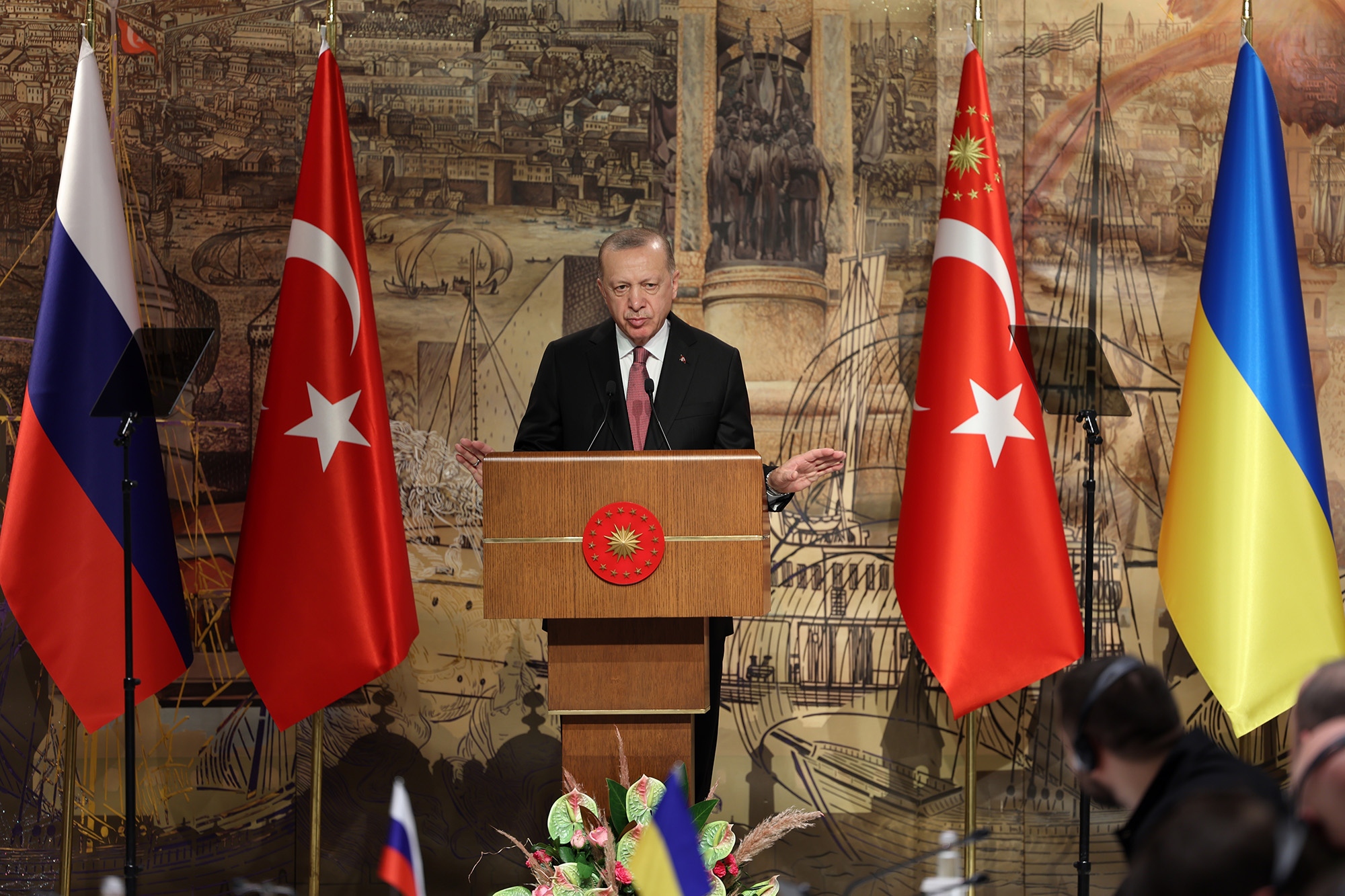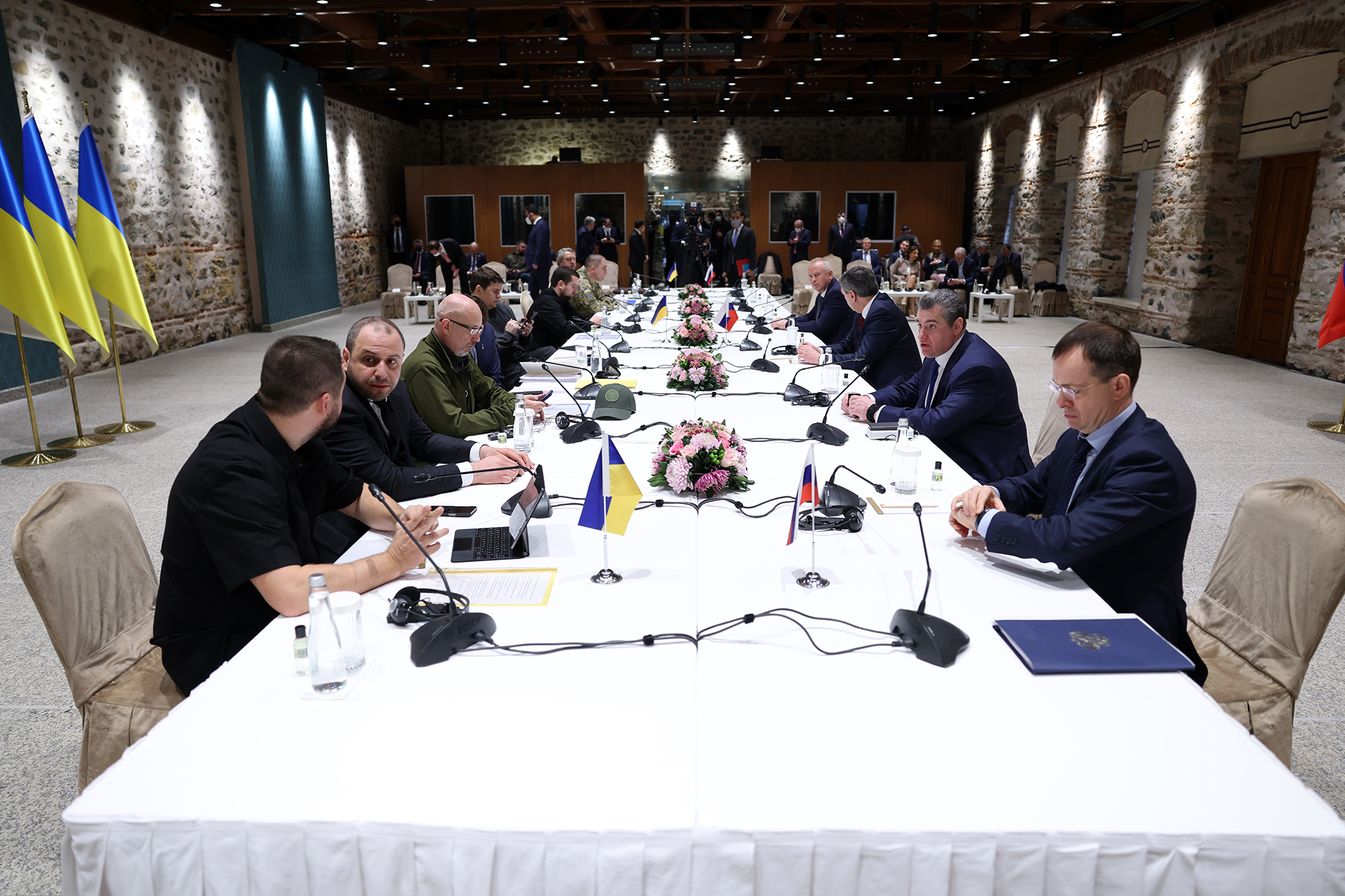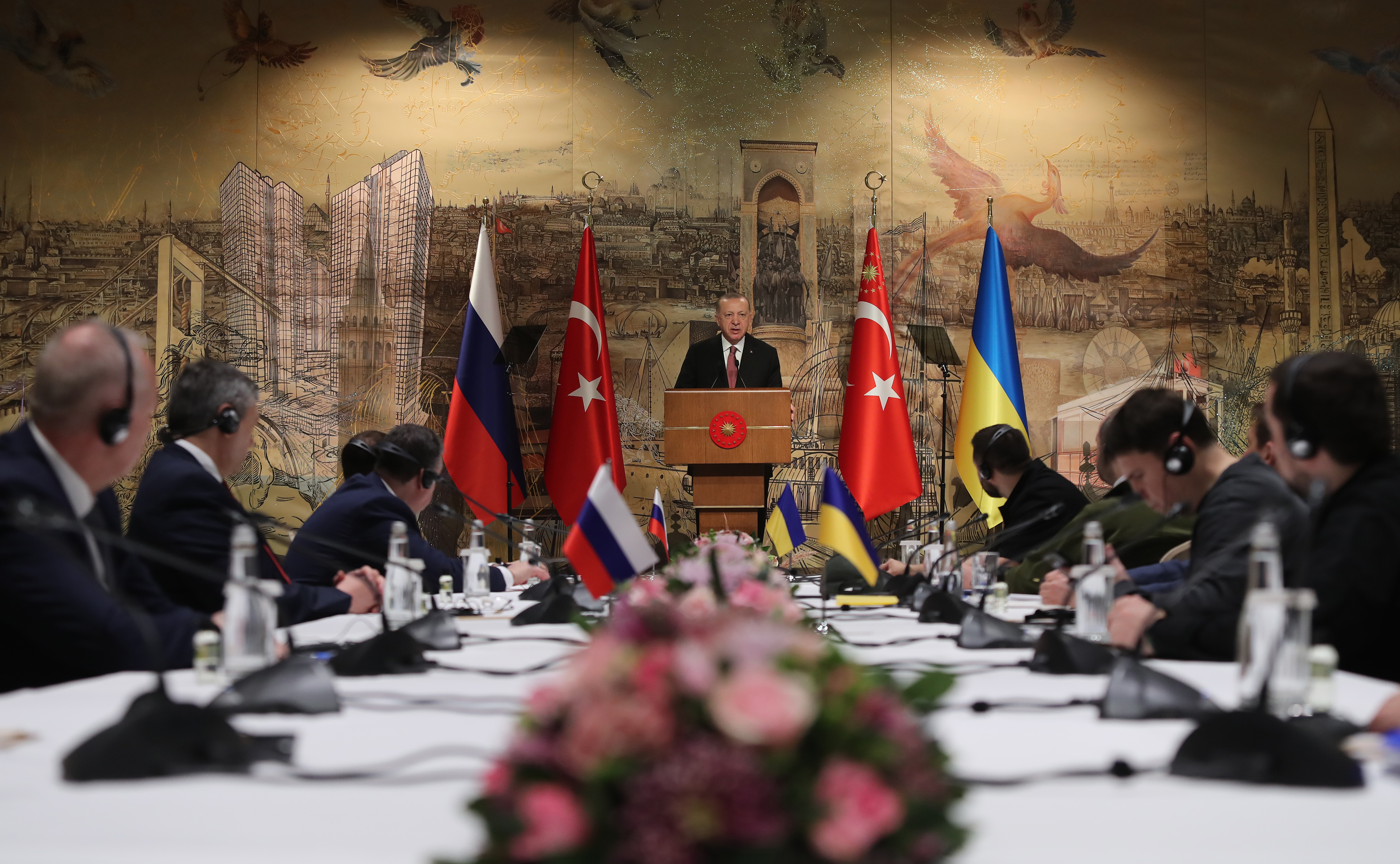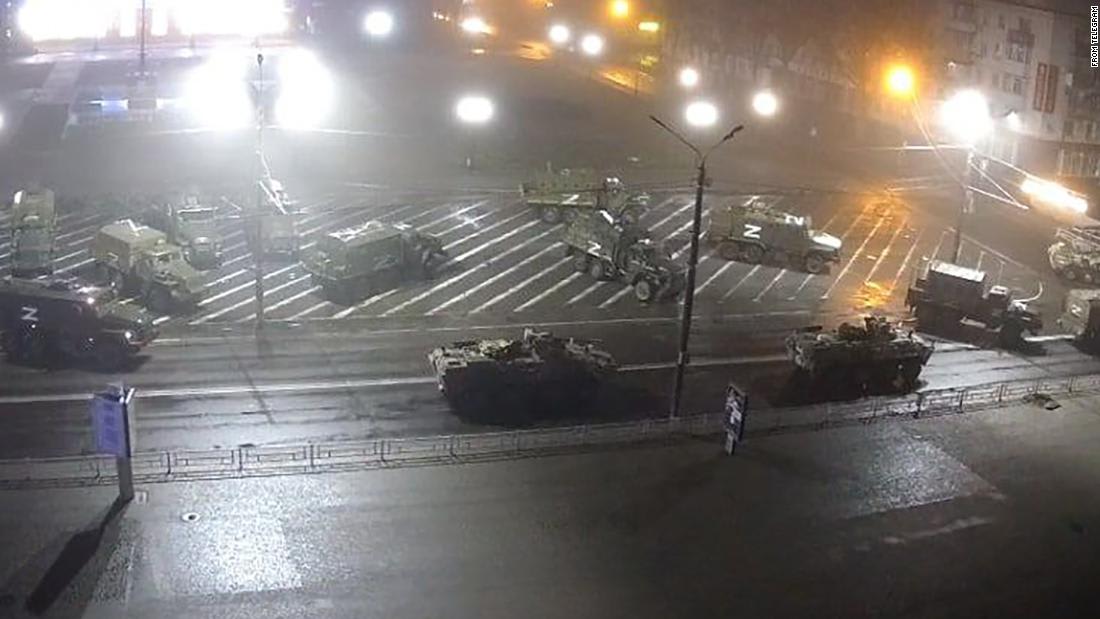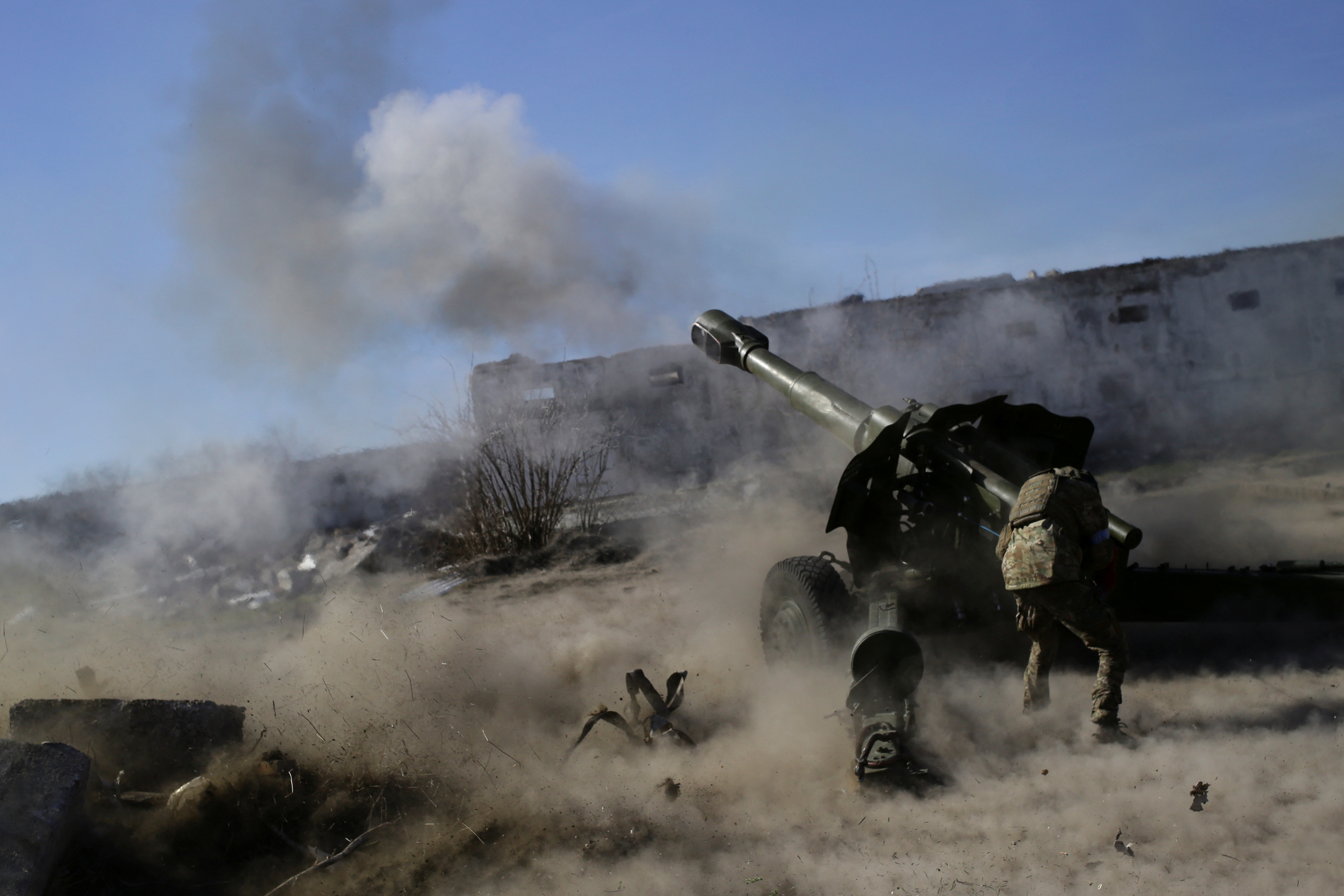
Russia’s most significant battlefield achievement in south Ukraine has been the capture of Kherson in the first week of March – seen as the first important gain towards a possible offensive against Odesa, the country’s third largest city.
But in recent days, CNN has reported on Russia’s struggles to hold its front line northwest of the city, as well as Ukrainian successes targeting Russian attack helicopters at nearby Kherson airport.
Now, Ukrainian officials are reporting potentially significant gains elsewhere in the south, pushing Russian forces back as much as around 31 miles (50 kilometers) in fighting near the city of Kryvyi Rih.
"The enemy is no longer just stopped in all directions - but has actually been pushed back from the distant approaches to the city," Oleksandr Vilkul, the top official in Kryvyi Rih, said late Monday.
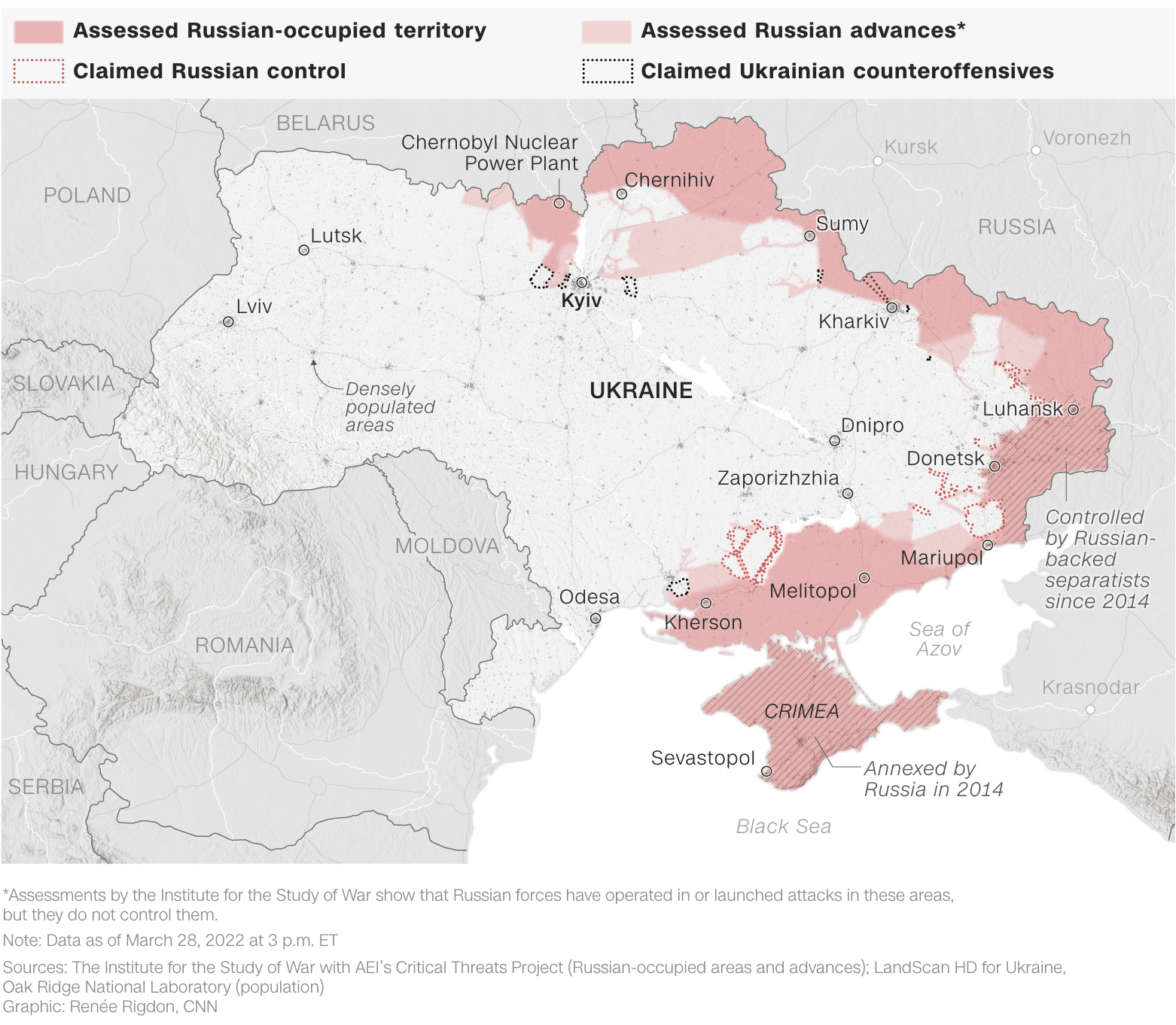
"Today, several more settlements in the Kherson region have been liberated. The invaders are at a distance from Kryvyi Rih of at least 40 kilometers (25 miles), in some directions as much as 60 kilometers (37 miles)."
Previously, Ukrainian officials said Russian troops were within 10 kilometers (6 miles) of the city, which has a population of more than 500,000 and lies between Kherson and Dnipro.
"The contact line is no longer on the border with the Dnipropetrovsk region, and it is already in the Kherson region. Our military shows real bravery and inflicts serious damage on the enemy," Vikul said.
Most residents had remained in Kryvyi Rih since the start of the war, Vikul added. "You can see for yourself that the city lives and works," he said on a video statement posted on Facebook.
In a reminder of the ongoing threat posed by Russian attacks, regardless of any changes in control of territory, the top official in the nearby city of Nikopol reported a missile strike close to his city. There were no reports of casualties, Eugen Evtushenko said on Facebook.
